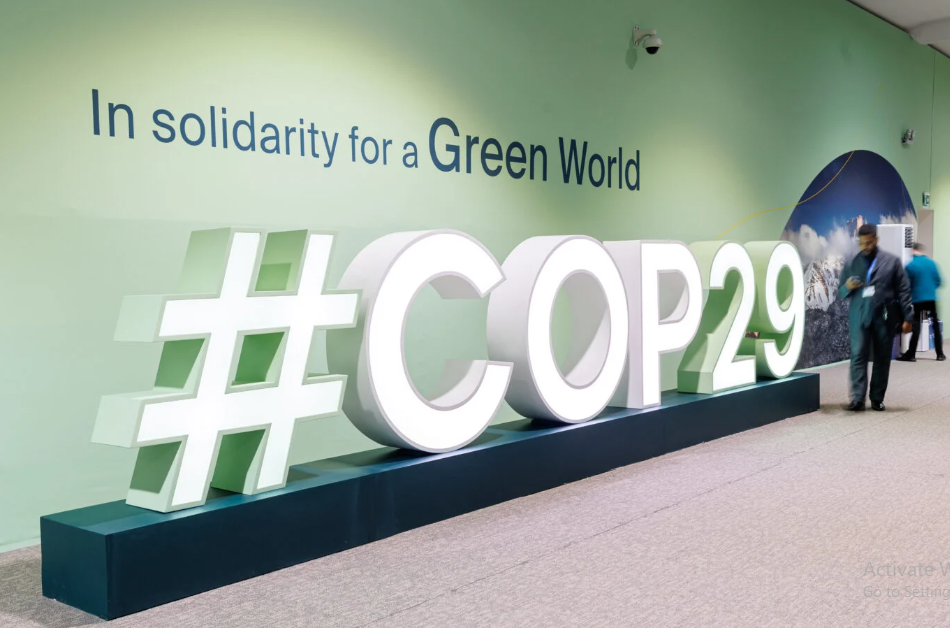ENVIRONMENT

INSIGHT: IS NIGERIA READY TO HOST COP32?
Nigeria has officially announced its bid to host the 32nd United Nations Conference of Parties (COP32) in 2027. If successful, it would be the first time the country hosts such a prestigious global climate summit.
The Conference of Parties (COP) is an annual gathering of all 198 member nations of the United Nations Framework Convention on Climate Change (UNFCCC), where they negotiate and advance global efforts to curb temperature rise and support vulnerable nations. As the primary platform for global climate policy, COP plays a crucial role in holding countries accountable for their commitments and keeping environmental action at the forefront of government priorities.
Since its inception in 1995 in Berlin (COP1), the conference has led to significant global climate policies, including the Paris Agreement, adopted at COP21 in 2016. Under this agreement, nations committed to limiting global temperature rise to 1.5°C above pre-industrial levels and transitioning toward a low-carbon future.
Africa’s Turn to Host Another COP
With Africa set to host COP32 in 2027, following Egypt’s turn in 2022, Nigeria has become the first country to formally announce its bid for the global climate summit.
The continent has previously hosted COP in Morocco (COP7, 2001), Kenya (COP12, 2006), and South Africa (COP17, 2011). However, the final decision on the next host nation will be made collectively by African countries, with a tentative announcement expected at COP30 in Brazil this November.
During a visit to Lagos, Simon Stiell, UNFCCC's executive secretary, welcomed Nigeria’s interest in hosting COP32 but emphasized that a selection process is in place, as other nations are also expected to bid. For any country bidding to host COP, it must meet a range of logistical, infrastructural, financial, and political requirements to accommodate thousands of delegates, including heads of state, diplomats, activists, scientists, and media personnel.
While Nigeria has previously hosted major international events—such as the World Economic Forum on Africa in 2014 and the All-African Games in 1973 and 2003—hosting COP presents a far greater challenge, demanding extensive resources and coordination.
During a press briefing on Thursday, Tokunbo Wahab, Lagos State Commissioner for Environment and Water Resources, expressed the state's readiness to host COP37 if Nigeria secures the bid, stating that Lagos "has all it takes" to organize the event.
However, despite its enthusiasm, Lagos faces significant urban challenges that could complicate the management of an event of this scale.
With a population of over 13 million, Lagos already grapples with major urban challenges, including a housing deficit, severe traffic congestion, and overpopulation. These issues could pose logistical difficulties in hosting a large-scale international event like COP.
The city's housing shortage would make accommodating thousands of delegates and visitors particularly challenging, as demand for lodging would surge. Additionally, Lagos' notorious traffic congestion could hinder smooth transportation between venues, potentially disrupting the flow of the conference.
On the other hand, Abuja may present a more viable alternative due to its central location, making it easily accessible to participants from across the country. The city boasts modern infrastructure, including state-of-the-art convention centers, hotels, and efficient transport networks, which could facilitate a seamless conference experience.
Moreover, Abuja’s relatively lower congestion compared to Lagos provides a calmer, more organized environment, ideal for focused discussions and networking among global delegates.
Additionally, considering Nigeria’s complex security challenges and the large-scale nature of COP events—such as COP29, which hosted 66,778 on-site delegates—a comprehensive and well-coordinated security strategy would be essential to ensure the safety of all attendees.
Nigeria’s Commitment to Climate Action
Nigeria's stance on climate change has progressed significantly, with a growing acknowledgment of the urgency for climate action. In 2017, the country ratified the Paris Agreement, reaffirming its commitment to global efforts in tackling climate challenges.
The agreement's core objective is to keep global temperature rise well below 2°C above pre-industrial levels, with a strong push to limit the increase to 1.5°C. Nigeria has also demonstrated its commitment to climate action through its Nationally Determined Contributions (NDCs), which outline the country's strategies to cut greenhouse gas (GHG) emissions and adapt to climate change impacts.
The first NDC, submitted in 2015, set a target of reducing emissions by 20% unconditionally by 2030, with the potential for a 45% reduction contingent on international support.
Hosting COP32 in Nigeria would bring both immediate economic benefits and long-term advantages, such as job creation, increased tourism, foreign investment, and advancements in sustainable development.
In a post on X on Thursday, the Ministry of Environment highlighted that hosting the UN COP would offer strategic benefits, allowing Nigeria to prioritize key climate action areas at both national and continental levels.
Nigeria faces pressing climate challenges, including flooding, extreme temperatures, deforestation, and desertification. Hosting COP32 would place the country at the heart of global climate discussions, providing a platform to highlight its unique environmental issues and opportunities.
As one of Africa’s largest economies, Nigeria could leverage the event to amplify the continent’s voice in climate negotiations, advocating for financing mechanisms, technology transfer, and capacity-building initiatives to ensure a just transition.
Additionally, hosting COP32 could serve as a catalyst for Nigeria’s transition to a more diversified, resilient, and environmentally conscious economy, while also strengthening its fight against climate change.
The event could further enhance Nigeria’s global reputation, attracting investments in green technologies, renewable energy, and sustainable development projects.
"This represents a significant development in our ongoing coverage of current events."— Editorial Board









